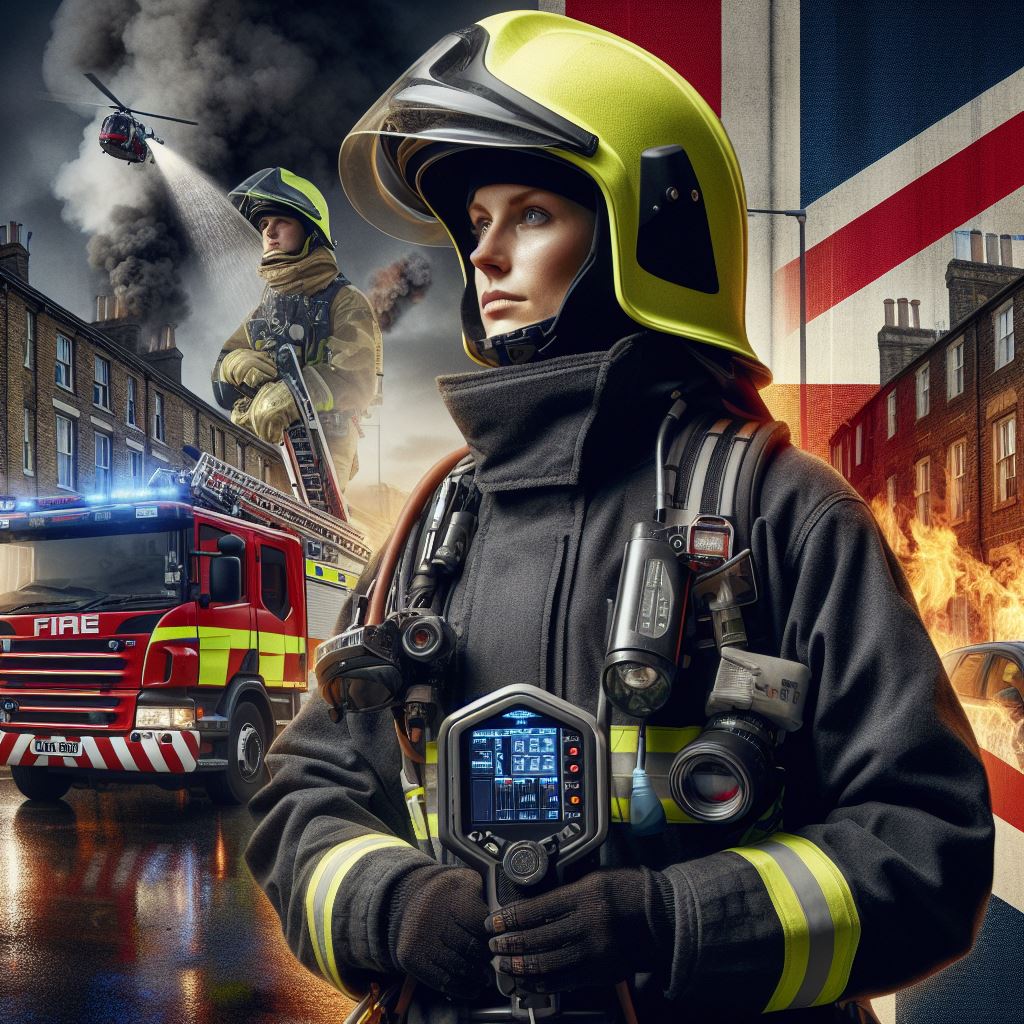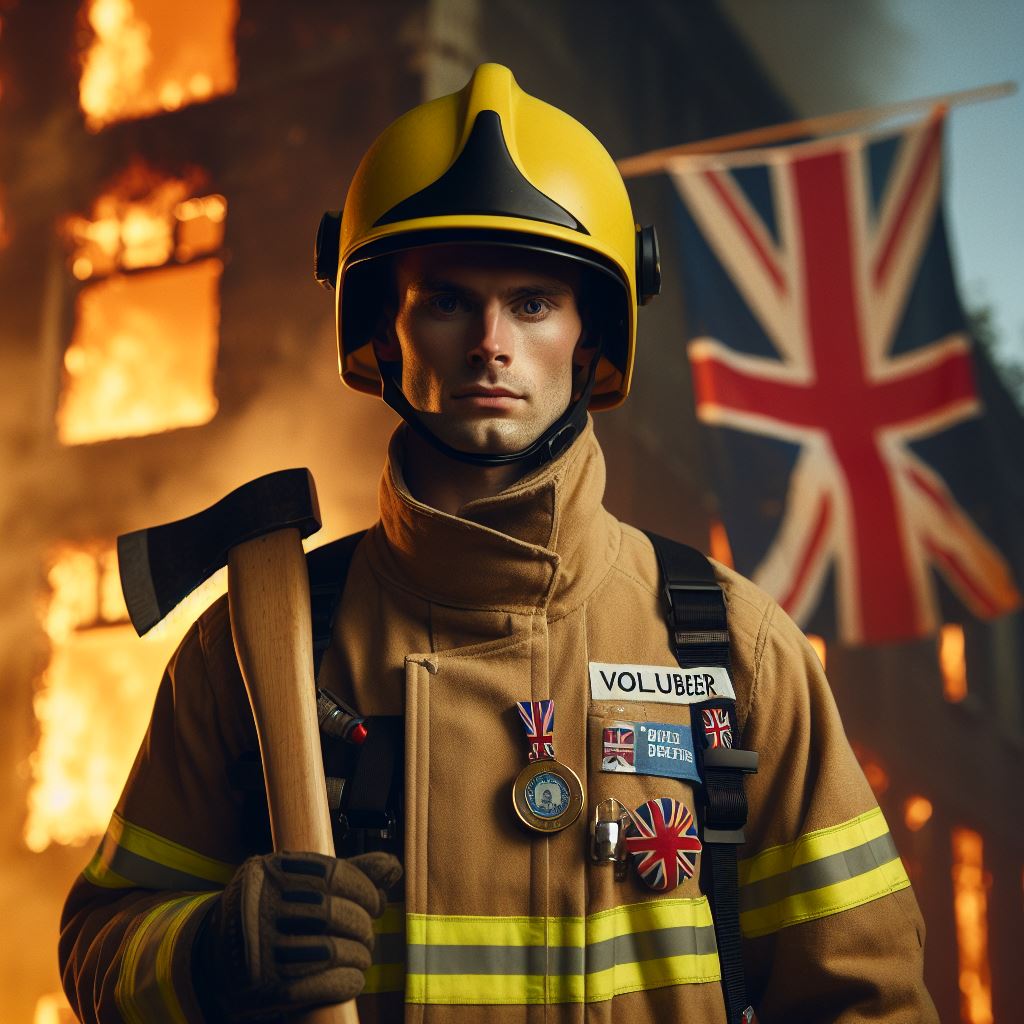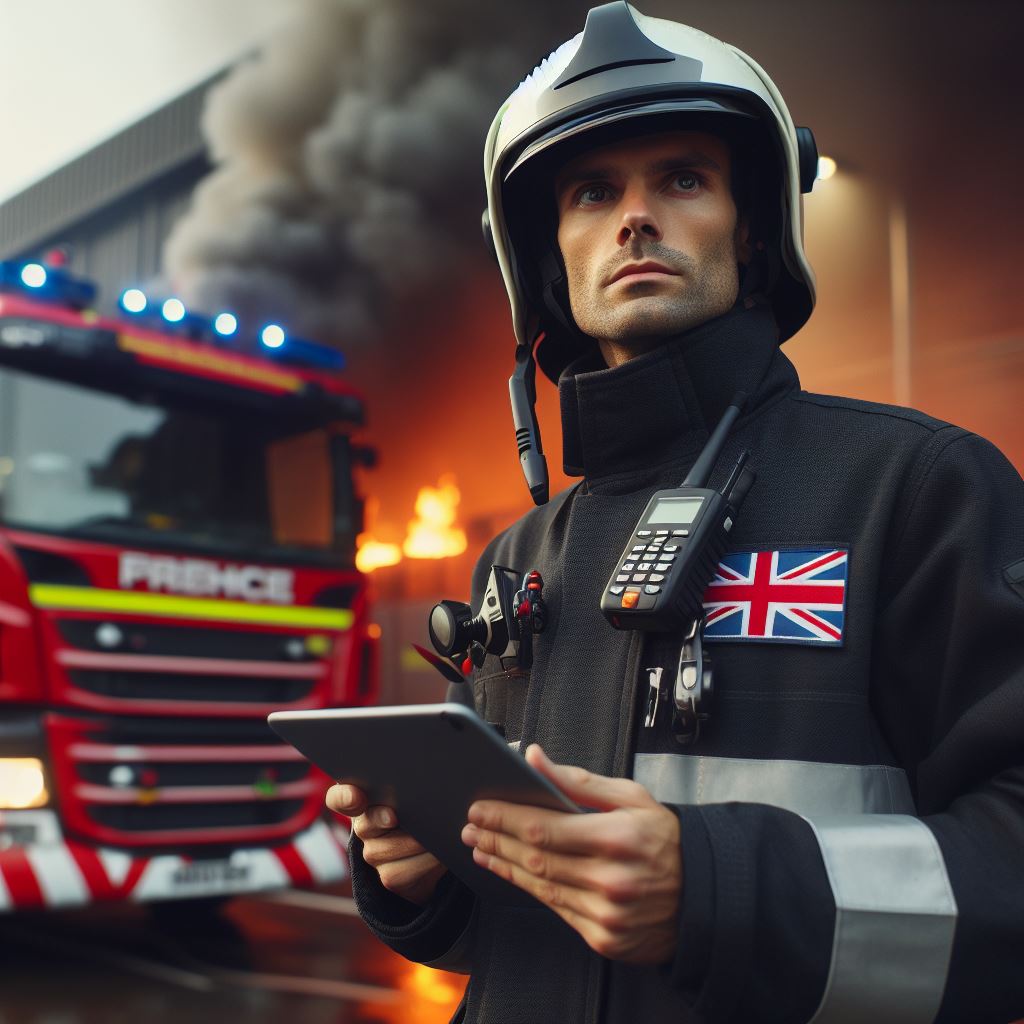Introduction
Exploring “Firefighters and PTSD” uncovers the hidden reality of how PTSD affects firefighters in the United Kingdom.
Post-Traumatic Stress Disorder, or PTSD, is a psychiatric disorder that develops after experiencing or witnessing a traumatic event.
It can cause severe anxiety, distress, and other debilitating symptoms.
It is crucial to address PTSD in various professions as it can significantly impact the mental health and wellbeing of individuals.
Untreated PTSD can lead to long-term consequences, affecting both personal and professional lives.
Firefighters face high-stress situations daily, often witnessing life-threatening incidents and traumatic events.
Firefighters dedicate their lives to saving others, putting themselves in dangerous situations to protect their communities.
Their heroic acts often go unrecognized, and the toll these experiences take on their mental health is rarely acknowledged.
While firefighting may seem like a thrilling job, the reality is that firefighters routinely encounter traumatic events that most people cannot even imagine.
These experiences can lead to symptoms of PTSD.
This section aims to illuminate the challenges they face, explore triggers contributing to their PTSD, and emphasize providing support and resources for this often overlooked issue.
Understanding the untold story of UK firefighters and PTSD breaks the stigma around mental health, ensuring proper care for them.
Understanding PTSD in Firefighters
Explanation of the nature of a firefighter’s job
- Firefighters are first responders who brave dangerous situations to save lives and protect property.
- They face intense physical and mental challenges due to the nature of their job.
- Firefighters often work in high-stress environments where they must make split-second decisions.
High-risk and traumatic incidents firefighters face regularly
- Firefighters frequently encounter traumatic events such as building collapses, explosions, and fatalities.
- They are exposed to extreme heat, burning buildings, hazardous materials, and life-threatening situations.
- Firefighters also witness distressing scenes such as severely injured or deceased individuals.
Increased vulnerability to developing PTSD
- Repeated exposure to traumatic incidents puts them at a higher risk of developing post-traumatic stress disorder (PTSD).
- The constant adrenaline rush and unpredictable nature of their job can have a profound psychological impact.
- The stress and emotional toll from witnessing distressing events can accumulate over time, increasing vulnerability.
Statistics on firefighters affected by PTSD in the UK
- According to a study conducted by the Mental Health Foundation, 20% of firefighters in the UK have reported symptoms of PTSD.
- The study also found that they are over four times more likely to experience symptoms of PTSD than the general population.
- Another survey by the Fire Brigades Union revealed that 92% of firefighters have experienced traumatic events during their careers.
- Unfortunately, many firefighters may not seek help or receive proper support due to the stigma surrounding mental health.
In short, understanding PTSD in firefighters is crucial to addressing the mental health challenges they face.
The nature of their job, characterized by high-risk and traumatic incidents, increases their vulnerability to developing PTSD.
Disturbing statistics highlight the prevalence of PTSD among firefighters in the UK.
Personalized UK Career Consulting
Receive tailored career guidance designed just for you. Get actionable steps and expert support to boost your career in 1-3 days. Take control of your career now.
Get StartedIt is essential to provide resources, support, and education on mental health within the firefighting community to ensure their well-being.
Read: Fire Safety Education: A UK Firefighter’s Role
The Concealed Effects of PTSD
By shedding light on the concealed effects of PTSD, we can begin to understand the immense toll it takes on firefighters’ lives.
Exploration of the impact of PTSD on firefighters’ mental health
- PTSD takes a toll on firefighters’ mental well-being, affecting their overall quality of life.
- Flashbacks, nightmares, and intrusive thoughts are common symptoms experienced by firefighters with PTSD.
- Feelings of guilt, shame, and irritability often accompany PTSD, making daily life challenging for firefighters.
- PTSD increases the risk of developing other mental health disorders such as depression and anxiety.
- By deteriorating mental health, PTSD can impair a firefighter’s ability to perform their duties effectively.
Relationship between PTSD and substance abuse, depression, and anxiety
- PTSD often coexists with substance abuse as firefighters may rely on drugs or alcohol to cope.
- Self-medication through substance abuse further exacerbates the negative effects of PTSD on firefighters’ mental health.
- Depression is a common co-occurring disorder with PTSD, intensifying feelings of sadness, hopelessness, and despair.
- Anxiety disorders, such as panic attacks or social anxiety, commonly occur alongside PTSD in firefighters.
- Substance abuse, depression, and anxiety compound the challenges faced by firefighters struggling with PTSD.
Discussion on the consequences of unaddressed PTSD
- If left unaddressed, PTSD can lead to serious long-term consequences for firefighters.
- Relationships with family, friends, and colleagues may be strained or deteriorate due to untreated PTSD.
- Untreated PTSD can negatively impact a firefighter’s physical health, leading to chronic conditions.
- Firefighters with unaddressed PTSD may experience reduced work performance and higher rates of absenteeism.
- In severe cases, firefighters may become socially isolated and contemplate or attempt suicide.
- The concealed effects of unaddressed PTSD can have devastating outcomes on the lives of firefighters.
It is crucial to recognize these hidden effects and advocate for the proper support and treatment of firefighters with PTSD.
Raising awareness and promoting mental health resources can create a safer, more supportive environment for those risking their lives daily to protect our communities.
Read: Women in UK Firefighting: Breaking Barriers
Recognizing and Addressing PTSD in Firefighters
Importance of early detection and intervention
- Early detection and intervention are crucial in preventing the long-term effects of PTSD.
- Timely recognition allows for prompt treatment, reducing the severity and duration of symptoms.
- Early intervention improves the overall well-being of firefighters and their ability to return to work.
- Providing resources and education about PTSD helps create a supportive environment for affected firefighters.
Identifying the signs and symptoms of PTSD
- Familiarizing firefighters with the signs and symptoms of PTSD enhances self-awareness.
- Common symptoms include intrusive thoughts, nightmares, flashbacks, irritability, and avoidance.
- Physical symptoms such as insomnia, headaches, and digestive problems may also manifest.
- Recognizing the signs enables firefighters to seek help and facilitates early intervention.
Support systems in place for firefighters in the UK
- Fire departments in the UK have established support systems to address PTSD among firefighters.
- Peer support programs encourage open communication and provide a safe space for sharing experiences.
- Counseling services, both internal and external, help firefighters cope with PTSD and related challenges.
- Structured debriefing sessions after critical incidents promote mental well-being and resilience.
Existing initiatives and services for PTSD treatment and prevention
- The UK government has implemented initiatives targeting early PTSD treatment and prevention.
- Mental health resources and specialized treatment facilities are available for firefighters.
- Collaborations between organizations and mental health professionals contribute to comprehensive PTSD care.
- Continuous research and evaluation of existing programs ensure their effectiveness and adaptability.
By recognizing the importance of early detection and intervention, firefighters can overcome the challenges of PTSD more effectively.
Identifying the signs and symptoms of PTSD empowers individuals to seek help and support.
The support systems established within the UK fire departments create a safe environment for firefighters to address their mental health concerns.
Furthermore, existing initiatives and services contribute to proactive PTSD treatment and prevention.
With a comprehensive approach, the UK firefighting community can address PTSD and provide the necessary resources to support their brave heroes.
Read: Understanding the UK’s Fire Service Ranks

Delve into the Subject: Technology’s Role in Modern UK Diplomacy
Gain More Insights: Day in the Life of a UK Police Officer: An Insight
Your Dream Job Starts with a Perfect CV
Get a tailored CV and cover letter that captures your unique strengths and stands out in your industry. Let us help you make an unforgettable first impression.
Get StartedBreaking the Stigma and Encouraging Support
Society’s perception of mental health in firefighters
- Society often overlooks the mental health struggles faced by firefighters in their line of duty.
- There is a prevailing belief that firefighters should be invincible and unaffected by traumatic experiences.
- This perception creates a stigma and hinders their ability to seek help and support for mental health issues.
- It is crucial to challenge these societal views and recognize the impact of firefighting on mental well-being.
- By understanding the challenges firefighters face, we can provide better support and break the stigma surrounding mental health.
Addressing common misconceptions about PTSD
- Misconception: PTSD is only experienced by military personnel.
- Fact: Firefighters are also susceptible to PTSD.
- Misconception: Only firefighters who have experienced severe incidents develop PTSD.
- Fact: Any traumatic event can lead to PTSD.
- Misconception: PTSD is a sign of weakness.
- Fact: PTSD is a normal response to abnormal events.
- Misconception: PTSD cannot be treated.
- Fact: With proper support, many individuals with PTSD can heal and recover.
By addressing and clarifying these misconceptions, we can foster a more understanding and empathetic environment.
Encouraging open dialogue and reducing stigma surrounding mental health
- We must create a safe space for firefighters to share their experiences and seek help without fear of judgment or repercussions.
- Organizations should implement mental health programs that prioritize confidentiality and confidentiality.
- Training sessions and workshops can educate firefighters on openly discussing their mental well-being.
- Showcasing positive stories of firefighters who have sought help for mental health issues can encourage others to do the same.
- Reducing the stigma surrounding mental health will promote early intervention and improve outcomes for firefighters.
Promoting awareness and education about PTSD among firefighters and the general public
- Firefighter organizations must provide comprehensive education about PTSD, its symptoms, and available resources.
- Training should include techniques for recognizing signs of PTSD in oneself and fellow firefighters.
- Collaboration with mental health professionals can ensure access to effective treatments and support services.
- Public awareness campaigns can dispel myths surrounding PTSD and emphasize the importance of support for firefighters.
- By promoting awareness and education, we can equip firefighters and the general public with the knowledge to address PTSD effectively.
Overall, breaking the stigma and encouraging support for firefighters with PTSD is a collective responsibility.
Shift societal perceptions, address misconceptions, foster open dialogue, and promote awareness to create a supportive environment for firefighters’ mental health.
Personal Stories and Testimonials
Sharing real-life experiences of firefighters dealing with PTSD
- Firefighter John recalls the traumatic incident that triggered his PTSD.
- Michelle shares how PTSD affected her relationship with her family and friends.
- David talks about the nightmares and flashbacks that haunt him every day.
- Emma describes the anxiety and panic attacks she experiences due to her PTSD.
Highlighting the challenges faced and resilience shown
- Despite their PTSD, firefighters like John continue to serve and protect their communities.
- Michelle underwent therapy and showed incredible strength in overcoming her PTSD.
- David’s determination to not let his PTSD define him is awe-inspiring.
- Emma’s resilience in managing her symptoms demonstrates the true spirit of a firefighter.
Amplifying the importance of empathy and understanding
- By sharing their stories, they hope to raise awareness and reduce the stigma around PTSD.
- Understanding the challenges faced by firefighters with PTSD fosters compassion and support.
- Empathy towards firefighters dealing with PTSD can encourage them to seek help.
- Providing a supportive environment is crucial in helping firefighters cope with their PTSD.
Read: Firefighter Fitness: Staying Fit for Duty in the UK
Conclusion
In this blog post, we have shed light on the untold story of firefighters and their struggle with PTSD in the UK.
We have explored the challenges they face and the impact it has on their lives.
It is evident that firefighters affected by PTSD require more than just awareness.
We need further research to better understand the specific triggers and symptoms experienced by firefighters.
Support systems and resources must be developed to address their unique needs.
It is our responsibility as a society to advocate for positive change. They deserve the utmost support in their battle against PTSD.
By raising awareness, implementing necessary changes in policies, and providing resources, we can uplift the mental well-being of these heroic individuals.
Let us remember to appreciate the sacrifices made by them and works towards a future where they are not left silently battling PTSD.
Together, we can make a difference and ensure a brighter future for our brave firefighters.
[E-Book for Sale]
500 Cutting-Edge Tech Startup Ideas for 2024 & 2025: Innovate, Create, Dominate
$19.99 • 500 Tech Startup Ideas • 62 pages
You will get inspired with 500 innovative tech startup ideas for 2024 and 2025, complete with concise descriptions to help you kickstart your entrepreneurial journey in AI, Blockchain, IoT, Fintech, and AR/VR.




